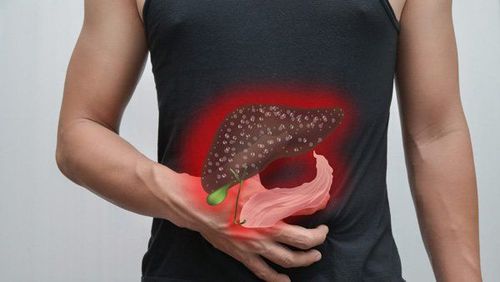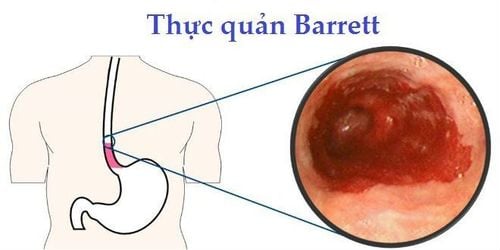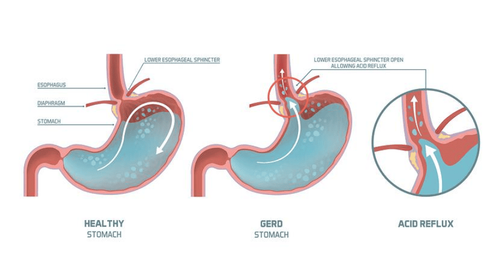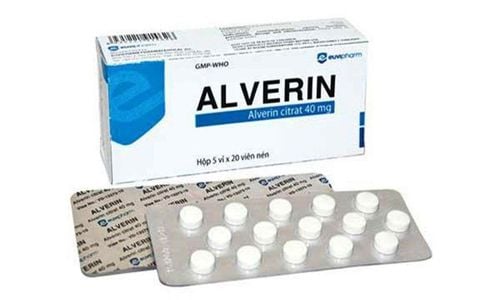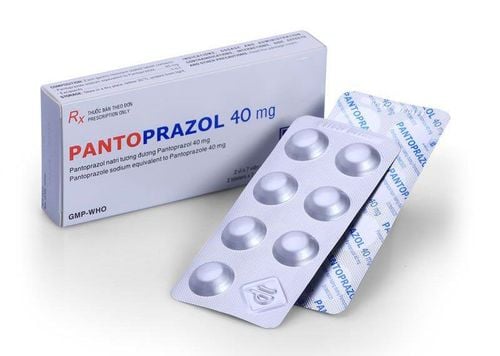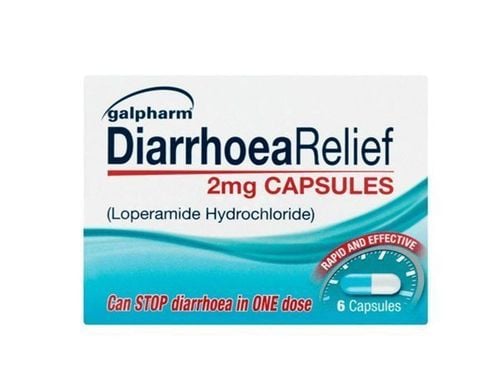This is an automatically translated article.
The article was professionally consulted by Doctor Vo Thi Thuy Trang, Department of Medical Examination & Internal Medicine - Vinmec Danang International General HospitalBile reflux is difficult to distinguish from acid reflux, requiring additional tests to confirm. The disease is treated with drugs and surgery in cases where there is a risk of cancer progression.
1. Diagnosis
Diagnosis of bile reflux is mainly based on symptoms and medical history. However, patients need to do some more tests because bile reflux and acid reflux are difficult to distinguish. Other tests help check for damage to the esophagus and stomach and for signs of pre-cancer.
Tests may include:
Endoscopy: A thin, flexible tube with a camera (endoscope) is inserted into the mouth through the throat. Endoscopy helps to detect peptic ulcers or inflammation in the stomach and esophagus. Endoscopy detects early gastric esophageal cancer. Your doctor may also take a tissue sample to check for cancer of the esophagus or Barrett's esophagus. Ambulatory acid probe (pH) test: These tests use an acid probe to determine when and for how long acid backs up into the esophagus. In one test, a thin, flexible tube (catheter) with a probe is threaded through the nose into the esophagus. In another test (the Bravo test), a probe is attached to the lower part of the esophagus during an endoscopy. Ambulatory acid (pH) testing can help your doctor rule out acid reflux, but it won't rule out bile reflux. Esophageal Impedance Monitoring: Esophageal Impedance uses a probe that is placed into the esophagus with a catheter. This test helps measure gas or liquid reflux into the esophagus. It helps to detect non-acidic substances (such as bile) that are not detected by the acid probe.

2. Treatment
Lifestyle modifications and medications are effective for acid reflux, but bile reflux is more difficult to treat. There is little evidence evaluating the effectiveness of treatments for bile reflux, in part because it is difficult to identify bile reflux as the cause of symptoms.
2.1 Ursodeoxycholic Acid Pills: Ursodeoxycholic acid pills help promote bile flow. Medications work to reduce the frequency and severity of symptoms. Bile acid sequestrants: Doctors often prescribe bile acid sequestrants, which disrupt bile flow, but studies show that these drugs are less effective than other treatments. Side effects, such as bloating, can make the condition worse. Proton Pump Inhibitors: Proton pump inhibitors are commonly prescribed to block acid production, but a clear role in the treatment of bile reflux has not been established. 2.2 Surgery Doctors may recommend surgery if medication does not relieve severe symptoms or there is progress in precancerous stomach or esophageal cancer. Different types of surgery have different results, so you need to discuss carefully with your doctor to choose the most appropriate surgical method.
Options include:
Diversion surgery (Roux-en-Y): This procedure, also a type of weight loss surgery, may be recommended for people who have had a pylorectomy. In Roux-en-Y, surgeons created a new connection to help drain bile further into the small intestine, reducing the risk of bile backing up into the stomach. Anti-reflux surgery: The part of the stomach closest to the esophagus (bottom) is wrapped and then sewn around the lower esophageal sphincter. This procedure strengthens the valve that separates the stomach from the esophagus and can reduce acid reflux. However, there is little evidence of the effectiveness of surgery for bile reflux.

3. Lifestyle and home remedies
Bile reflux is almost unrelated to lifestyle factors. Lifestyle changes are recommended for people with both acid reflux and bile reflux.
Quit smoking: Smoking increases stomach acid production and dries out saliva, while saliva helps protect the esophagus. Eat smaller meals: Eating smaller, more frequent meals reduces pressure on the lower esophageal sphincter, which helps prevent the valve from opening at the wrong time. Stand up straight after eating: After a meal, wait 2-3 hours before lying down, which is the time for the stomach to digest the food. Limit foods high in fat: A high-fat meal relaxes the lower esophageal sphincter and slows down the rate at which food is digested. Avoid food and drink problems: Certain foods increase the production of stomach acid, which relaxes the lower esophageal sphincter. Among the typical are caffeinated and carbonated beverages, chocolate, citrus fruits and juices, vinegar sauces, onions, foods derived from tomatoes, spicy foods and mints. Limit or avoid alcohol: Drinking alcohol relaxes the lower esophageal sphincter and irritates the esophagus. Weight loss: Heartburn and acid reflux are more likely to occur when excess weight puts extra pressure on the stomach. Elevate the bed: Sleeping with your upper body elevated 4 to 6 inches (10 - 15 cm) can help prevent reflux symptoms. Raise the head of the bed using extra pillows. Relaxation: When you're stressed, digestion slows down, which can worsen reflux symptoms. Relaxation techniques, such as deep breathing, meditation, or yoga, can help.
4. Use of Complementary Treatments
For those who suffer from frequent stomach problems like heartburn, it makes sense to add over-the-counter medications and other therapies to relieve symptoms. However, before buying medicine you should consult your doctor because some drugs interact with the medicine prescribed for you, cause side effects, or do not work in your case.
There is no alternative treatment to reduce bile reflux and protect the body against and reduce inflammation of the stomach and esophagus. Using herbs also only works in some specific cases, and is harmful for some people.
Please dial HOTLINE for more information or register for an appointment HERE. Download MyVinmec app to make appointments faster and to manage your bookings easily.
Article referenced source: mayoclinic.org




